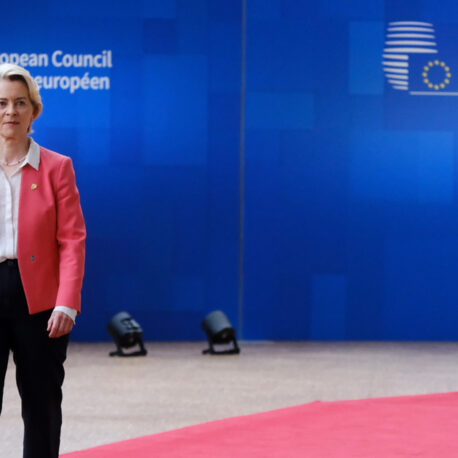
- Finland’s next government programme must include a clear and strong definition of the objectives and priorities of Finland’s EU policy.
- In the ongoing parliamentary election debates, EU matters have unfortunately been largely overlooked.
- Finnish decision-makers and officials must actively protect the interests of Finnish work and production, including the Finnish financial sector and its customers. This is the point Chair of Finance Finland’s Board and CEO of LocalTapiola Group Juha Koponen highlighted at Finance Finland’s Financial Evening (Finanssi-ilta) for media representatives on 23 March in Helsinki.
The Finnish financial sector has given strong support to Finland’s EU and EMU membership and considers it important for Finland to keep an active role in developing and strengthening the Union. Emphasis must be placed on each member state’s responsibility for its own public finances and the role of market discipline.
“The financial sector is one of the most strictly regulated and supervised sectors in economy. And so it should be. In the financial market, the most crucial production factors are trust and confidence, which are bolstered through regulation and ensured through sufficient supervision. Successful and sensible regulation increases confidence and trust, poor regulation undermines them. Good regulation can do a lot of good”, Koponen pointed out.
European banking union has strengthened the financial system – rash regulatory changes must now be avoided
“The financial crisis harshly confirmed the need to harmonise and deepen banking regulation and supervision in the EU. Over the first eight years of its operation, the banking union has unquestionably made the financial system stronger. The Finnish financial sector strongly supported the banking union’s creation.”
The regulation created after the financial crisis has improved bank resilience. It has also established mechanisms that allow authorities to step in at an early stage if a bank runs into problems and to handle possible crisis situations in a controlled and orderly manner. To prepare for possible crises, banks participating in the banking union have paid a total of €66 billion in contributions to the Single Resolution Fund (SRF). At the end of 2023, the SRF’s assets are estimated to reach almost €75 billion. Banks have also been contributing to their national deposit guarantee funds. These are important factors to bear in mind during the current turbulence, which was sparked by the US banking crisis.
“Will the shockwaves from the Pacific Coast that hit Switzerland also ripple to Finland?” asked Koponen.
“According to the Finnish Financial Supervisory Authority’s most recent report, the Finnish financial sector’s capital position has remained strong despite the deterioration in the operating environment. The banking sector, employee pension companies and life and non-life insurers are healthy and highly resilient.”
“It is now important to stabilise the situation and minimise the risk of the turbulence starting to reflect unfoundedly on the Finnish financial market and thus have a negative effect on Finland’s economy. Authorities must be clear in their communications and explain the differences between the EU and US regulation and crisis resolution frameworks, for example. They must also carefully assess which factors triggered the recent crises. Any rash regulatory changes must now be avoided”, Koponen said.
Still have questions?
|Contact our experts
Looking for more?
Other articles on the topic

Hooray for simplifying regulation! But obligations must be streamlined thoughtfully, without compromising environmental goals

Putting EU citizens’ savings to work – Commission seeks growth by promoting saving and investment

Finance Finland’s CEO Ahosniemi: The Commission makes grand declarations for better regulation but fails to back them up with concrete measures in its work programme

The EU needs to build a more favourable investment climate




